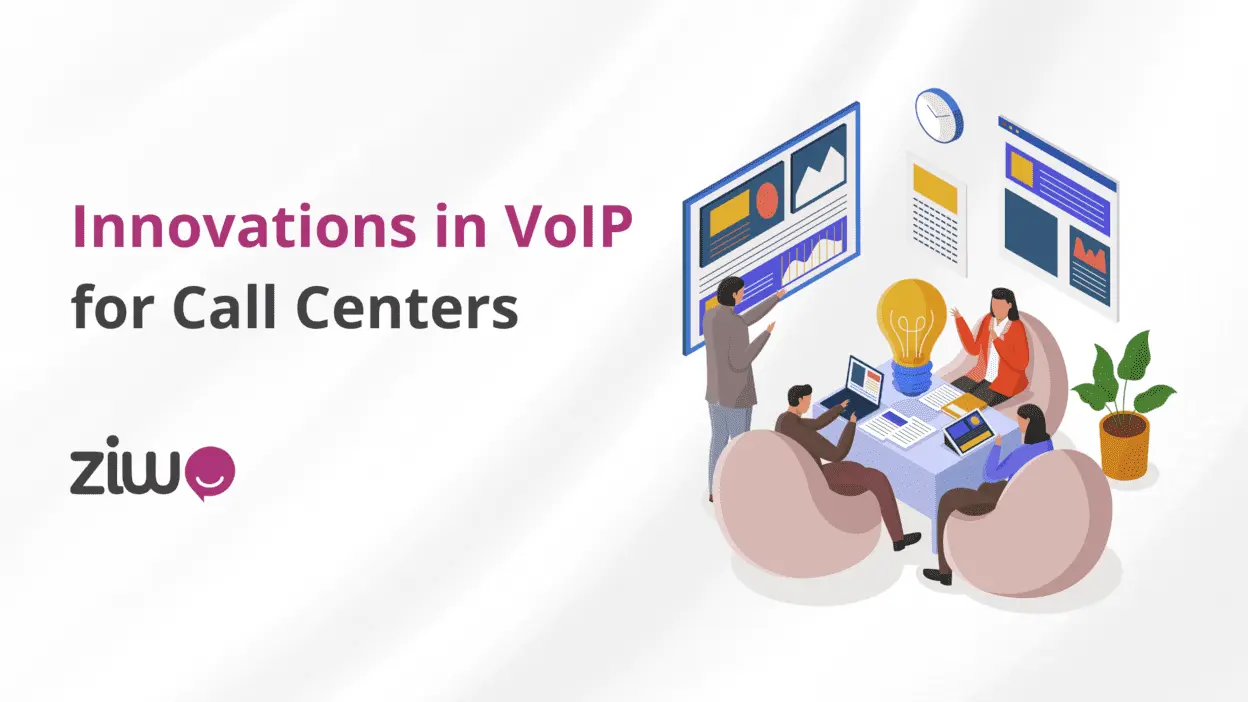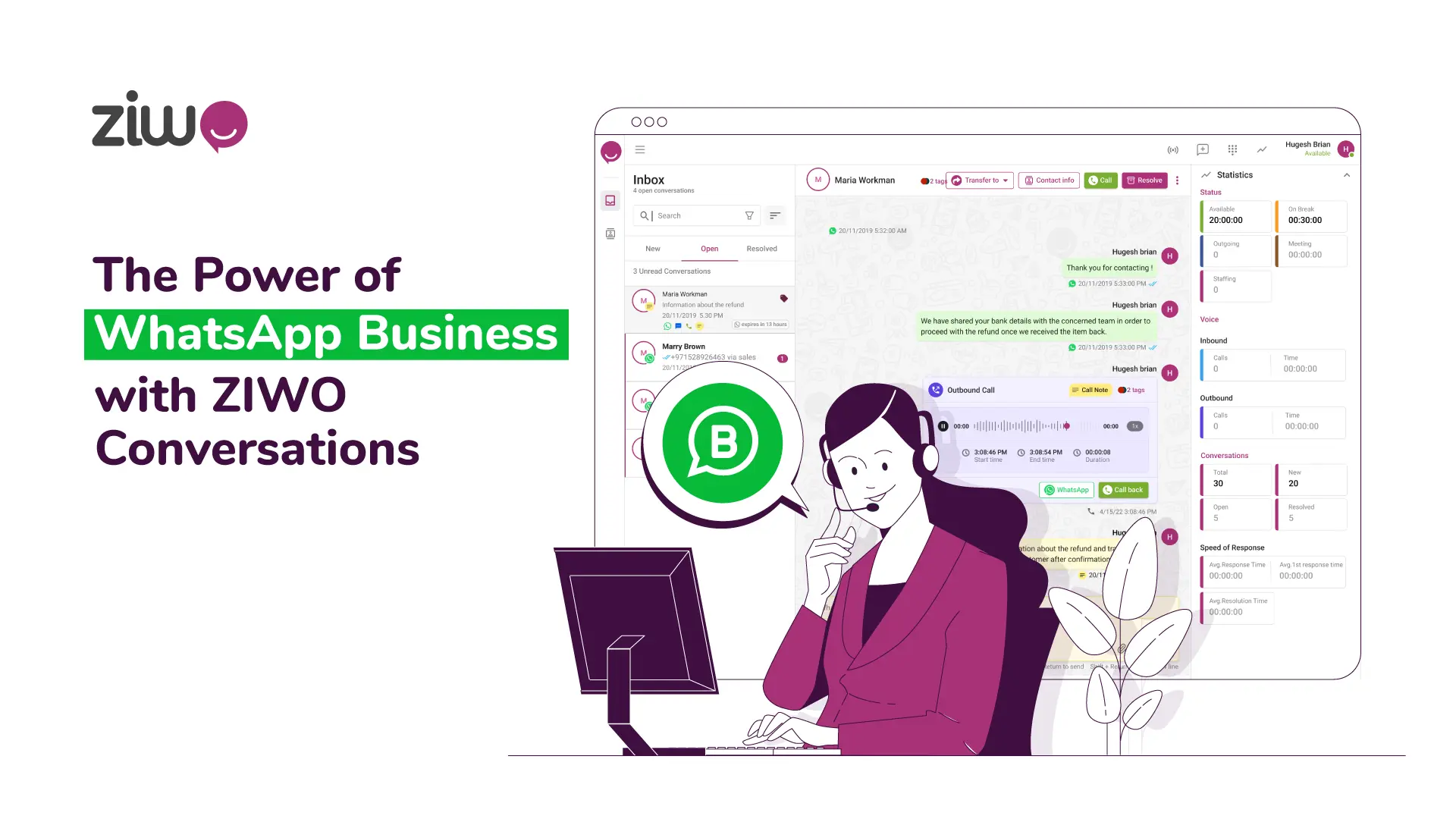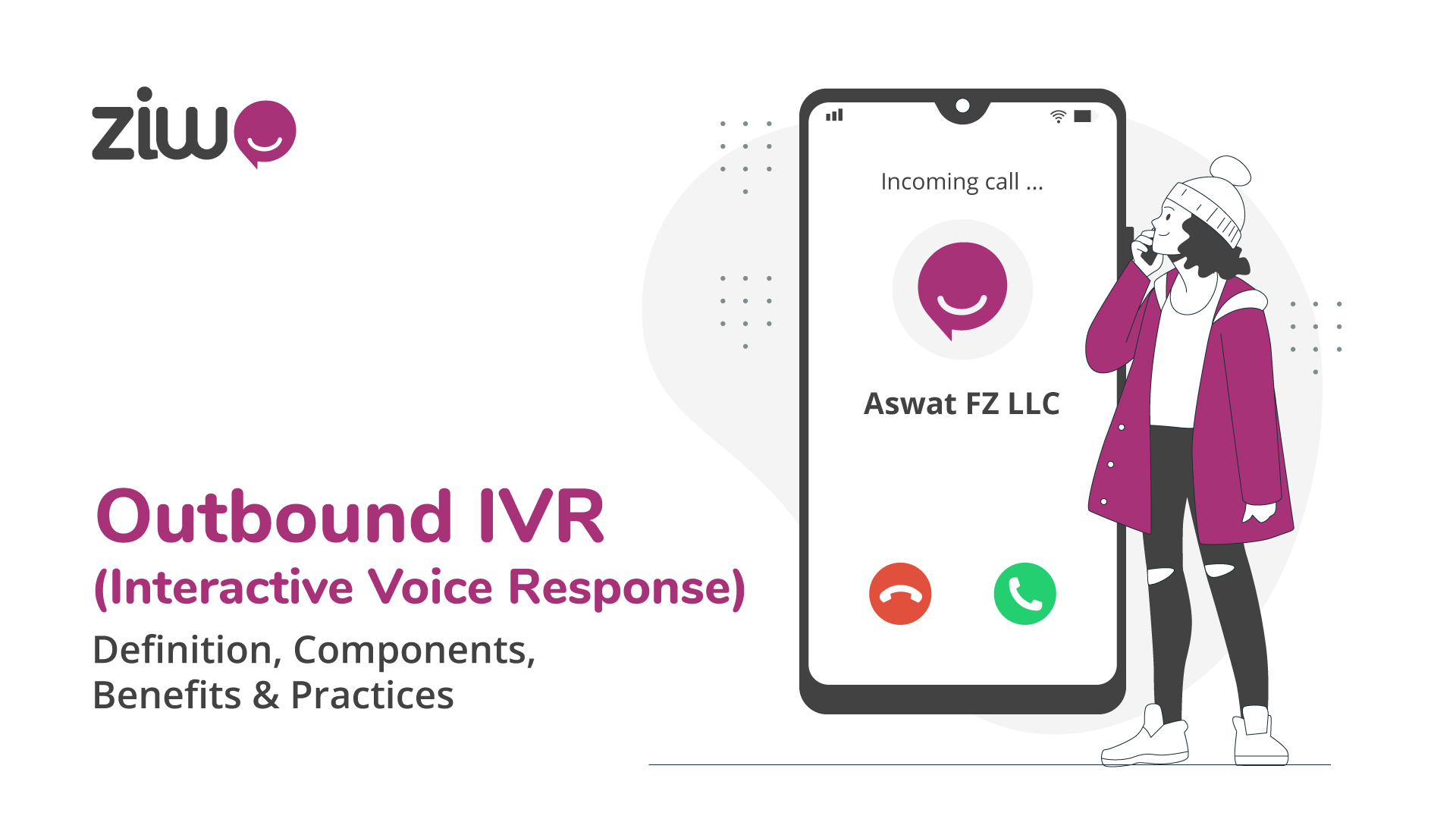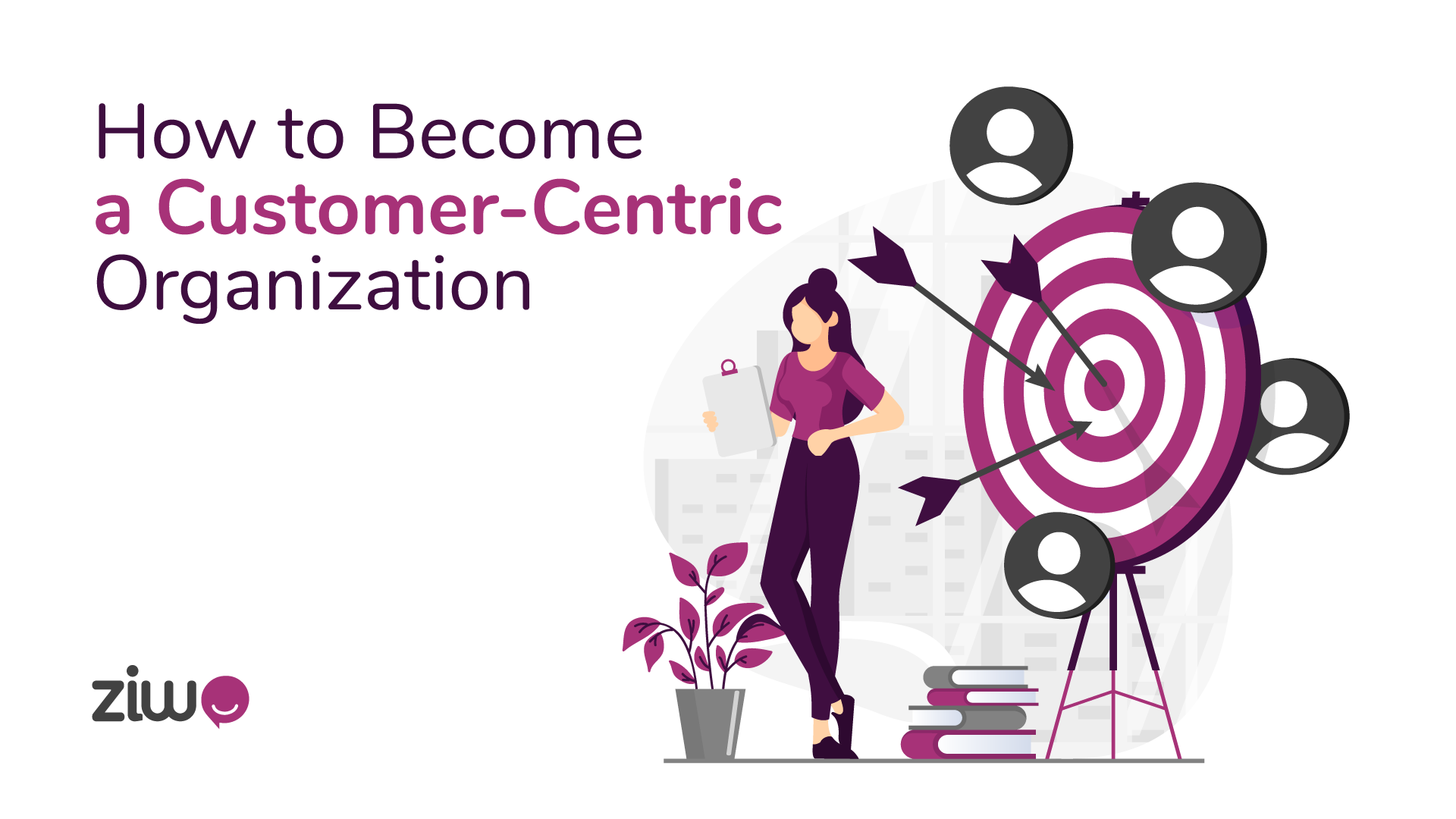
What are the innovations in VoIP solutions for call centers?
Advances in call center solutions for VoIPs are continuing to develop to satisfy the modern requirements of communication. Some key innovations include:
Advanced Call Routing: Advanced capabilities of VoIP systems include skills-based routing, intelligent IVR systems, and automatic call distribution (ACD) algorithms that ensure that calls find their way to the best agents according to set criteria.
Unified Communication Integration: VoIP solutions are becoming more and more integrated with other communication channels like email, chat, and social media platforms, as a result, an agent can handle many channels from one interface, and customers can get completely seamless omnichannel experiences.
Real-time Analytics and Reporting: Today’s VoIP platforms provide advanced analytics and reporting capabilities, making call centers aware of call volumes, agent performance, customer satisfaction metrics, and more in real-time, enabling data-driven decision-making, and continuous improvement.
AI-Powered Features: VoIP solutions are incorporating artificial intelligence (AI) and machine learning technologies to optimize call center operations. AI-driven functionalities are virtual assistants, speech analytics, sentiment analysis, and predictive analytics aimed at quicker call processing, personal customer management, and proactive problem-solving3.
Cloud-Based Solutions: VoIP solutions that are cloud-based have been in more demand lately which makes them scalability, flexible, and cost-effective for call centers. Cloud-based VoIP systems offer easy access to advanced functionalities, quick deployment, and smooth integration within the existing IT ecosystem4.
Innovations are revolutionizing call center processes, allowing organizations to provide better customer service, increase agent productivity, and grow the business in today’s competitive world.
Introduction to VoIP in the modern call center
The Voice over Internet Protocol, VoIP, has revolutionized the way call centers work, as detailed in how the integration of VoIP changed call center communication. VoIP through the use of the internet for voice communication eliminates the need for physical phone lines and hardware thereby reducing costs and increasing flexibility1.
The technology allows agents to deal with calls through software applications on computers or mobile devices, thus enabling an integration of the calls with other communication channels, so, giving call centers the power to provide high-quality customer service.
How AI is reshaping VoIP capabilities
AI (Artificial Intelligence) is reshaping VoIP (Voice over Internet Protocol) capabilities by introducing advanced features and functionalities that enhance communication efficiency and effectiveness in various ways: AI (Artificial Intelligence) is reshaping VoIP (Voice over Internet Protocol) capabilities by introducing advanced features and functionalities that enhance communication efficiency and effectiveness in various ways:
Intelligent Call Routing: AI algorithms process caller data, including caller history and preferences, to direct calls to the most suitable agent or department. This allows quick resolution times and increases customer satisfaction.
Virtual Assistants: AI-powered virtual agents like chatbots or voice assistants are capable of dealing with routine customer queries and tasks leaving human agents to work on more intricate issues that require a human touch. These virtual agents can offer immediate replies, all-day accessibility, and custom interactions.
Speech Recognition and Natural Language Processing (NLP): AI technologies allow VoIP systems to transcribe and to analyze spoken conversations instantly. This enables automotive call transcription, sentiment analysis, and identification of key customer insights thereby, better customer needs and preferences understanding.
Predictive Analytics: AI algorithms look at historical call data and predict future call volumes, recognize trends, and anticipate customer behavior. This will help call centers to set optimal staffing levels, make allocations of the resources better, and tackle possible problems in advance.
Voice Biometrics: The AI-powered voice biometric authentication improves security by precisely checking the identities of the callers according to their distinct voiceprints. This eradicates the need for the old system of PINs and passwords and offers a more secure and smooth authentication.
Personalized Customer Interactions: AI algorithms process customer data to individualize communication experiences. This involves dynamic call scripting, and the provision of appropriate product suggestions and responses adapted to each customer’s preferences.
In general, AI is transforming VoIP functionality to allow more intelligent, productive customized communication experiences for both customers and call center agents.
AI-driven call routing and management
AI-powered call routing and management make call handling procedures more efficient by ensuring that inbound calls are routed to the right agent or department.
These systems use sophisticated algorithms to evaluate numerous parameters including the data of the callers, the skills of agents, and the context of the calls on a real-time basis.
Through this automation, AI improves productivity, minimizes response times for clients, and ensures that calls are directed to the agent who is the most qualified to handle them. This leads to better customer satisfaction and more effective call center processes.
Speech analytics and sentiment analysis
AI in speech analytics and sentiment analysis helps draw useful intelligence from customer interactions. Speech analytics provides an automatic transcribing and analyzing of audio recordings of calls, though sentiment analysis assesses the emotional tone conveyed.
These instruments assist the call centers in defining trends, general problem areas, and the customer satisfaction state. Using this knowledge, call centers can strengthen agent training, respond to customer complaints in a better way, and improve service quality in general.
Cloud integration and its impact on VoIP solutions
Cloud integration has a significant impact on VoIP solutions, revolutionizing communication capabilities in various ways: Cloud integration has a significant impact on VoIP solutions, revolutionizing communication capabilities in various ways:
Scalability: Cloud-based VoIP solutions have scalability features that make it easy for organizations to adapt their communication infrastructure according to the level of fluctuations in demand. Cloud integration makes VoIP systems easy to scale up or down due to changes in call volume or the growth of an organization.
Flexibility: With cloud integration, VoIP solutions can be reached from any location with an internet connection, giving more freedom to employees with remote work and mobile employees. This enables agents to be connected irrespective of where they are and increases collaboration and efficiency.
Cost Efficiency: Cloud-based VoIP solutions get rid of the need for overpriced on-premises hardware and maintenance costs. The cloud infrastructure permits businesses to cut the up-front and recurring operational costs related to traditional phone systems.
Enhanced Features: Based on cloud integration, VoIP solutions allow to use of cloud advanced features: auto call recording, real-time analytics, and easy integration with other cloud applications. Such improvements include more productivity, better customer service, and overall communication efficiency.
Reliability and Redundancy: Cloud-based VoIP solutions provide very high levels of reliability and redundancy with failover features and data backup functions. This also guarantees nonstop operation and reduces downtime even when some hardware fails or the network is down.
In general, cloud integration improves the quality of VoIP solutions through scalability, flexibility, cost-effectiveness, advanced features, and reliability, which is the best solution for the modern company, that wants to optimize all its communication infrastructure.
Enhancing scalability and flexibility
Cloud integration modernizes the scalability and versatility of VoIP solutions, therefore making the communication systems of companies more flexible to respond to market needs.
VoIP services can be scaled up or down to suit the requirements using cloud-based infrastructure, removing the restrictions present in traditional hardware-based systems2. Such flexibility allows businesses to respond to changes in the volume of calls, optimize resource distribution, and function well in a home office environment.
Therefore, businesses can enhance operational effectiveness, lower costs, and provide improved customer outcomes.
Facilitating remote work in call centers
Cloud integration allows remote work in call centers by providing agents with access to the most vital communication tools and systems in any place with an internet connection.
This flexibility also facilitates work from home or other remote locations, which means less need for actual office space and a broader talent pool that is not constrained by geographic limitations.
Cloud VoIP solutions come with features such as virtual call routing and real-time collaboration tools, which ensure smooth communication and collaboration among remote agents. Therefore, call centers can have higher operational effectiveness, improve staffing levels, and provide uniform customer service based on wherever the agents are.
Security advancements in VoIP technology
Security innovations in VoIP technology have greatly improved the safety of communications and information. These advances include strong encryption standards, advanced authentication methods, firewall and intrusion detection systems integration, and the creation of secure VoIP protocols like Secure Real-time Transport Protocol (SRTP) and Transport Layer security (TLS).
These controls protect the confidentiality, integrity, and availability of voice communications, reducing vulnerabilities associated with unauthorized access and malicious threats. Due to this, organizations can depend on VoIP technology to offer secure and reliable communication channels for their operations.
Encryption and fraud prevention techniques
Encryption and fraud prevention methods are crucial in the security of VoIP communications. Encryption is the process of encoding voice data during transmission so that it is confidential safe and secure against unauthorized access. VoIP calls are often protected from interception by popular encryption standards such as Advanced Encryption Standard (AES) and Rivest-Shamir-Adleman (RSA).
The ways of fraud prevention include call authentication, real-time monitoring, access control, and fraud detection algorithms. These systems assist in discovering and deterring activities such as unauthorized call routing and toll fraud.
Through the use of strong encryption and fraud prevention mechanisms, VoIP systems enhance security, protecting businesses from possible attacks and preserving the quality of voice communications.
The rise of omnichannel VoIP solutions
The emergence of omnichannel VoIP solutions represents a major advancement in communication technology as they incorporate the abilities of VoIP with the omnichannel communication approaches.
These solutions allow businesses to smoothly integrate multiple communication channels such as voice calling, messaging, email, social media, and many others into one platform5. Implementing omnichannel VoIP solutions can help organizations improve customer involvement, promote teamwork, and simplify communication across various channels.
It allows businesses to offer an integrated experience to their customers irrespective of the medium of the interaction chosen, thereby, increasing efficiency, productivity, and customer satisfaction.
Integrating VoIP with CRM and social media
The integration of VoIP with CRM and social media platforms enables organizations to improve communication processes and customer interaction.
This fusion facilitates agents with the possibility of knowing customer information and interaction history within their communication interface, thus allowing more effectiveness and individualization in customer interactions.
Moreover, through the provision of voice call alternatives on social media platforms, businesses can deliver easy and efficient support experiences to customers, which will result in higher satisfaction and loyalty.
Conclusion: The future of VoIP in call centers
In summary, the future of VoIP in call centers is bright, as constant development and creativity will mold the communication technology industry. VoIP also evolves as a crucial instrument in customer service improvement, efficiency building, and uninterrupted communication through different channels. The fusion of AI, CRM, social media, and other technologies with VoIP makes it more effective and call centers can offer tailored, omnichannel experiences to customers.
In addition, the scalability and flexibility of VoIP solutions enable call centers to adjust to the changes of the business and accommodate a growing volume of communications easily. With the widespread adoption of remote work, the task of VoIP in supporting distributed teams and enabling remote collaboration will only grow.
Nevertheless, the security and reliability of VoIP systems is very important. Call centers should make substantial investments in security measures and watch out for new threats, to protect consumer data and to ensure continuity of operations.
In general, VoIP will continue to be a central element of modern call center operations, as technology advances and customer needs change, developing efficiency, improving customer experiences, and being part of the overall business success into the future.
Bibliographical references
1 – VoIP technologies and call center operations:
¹ Middleton, C., & Longford, G. (2016). The Internet and Telecommunications: The Transformation of Voice Services. MIT Press.
² Van Bommel, E., Ende, B., & Steenkamp, E. (2020). VoIP in the Modern Call Center: Efficiency and Innovation. Springer.
2 – Artificial intelligence in call centers:
³ Smith, A. (2019). AI-Driven Call Center Technologies: Enhancing Customer Interaction and Agent Productivity. CRC Press.
3 – Cloud computing and scalability in call centers:
⁴ Marston, S., Li, Z., Bandyopadhyay, S., Zhang, J., & Ghalsasi, A. (2011). Cloud Computing—The Business Perspective. Decision Support Systems, 51(1), 176-189.
4 – Omnichannel communication and CRM integration:
⁵ Payne, A., & Frow, P. (2005). A Strategic Framework for Customer Relationship Management. Journal of Marketing, 69(4), 167-176.






